Casual visitors
were admitted in the Entry Hall. The family and their close
friends used the north Foyer close to the circle drive where their
chauffeurs and autos awaited them. World War I was long over,
the Roaring Twenties had come and gone, and the Great Depression was
underway by 1930. But Phillips Petroleum Company was
prospering so the Phillips began rejuvenating their 21 year-old home
to the tune of a half-million dollars.
The Music Room
housed the Weber Baby Grand Piano and record player, and the
Victrola.
(Be sure your browser pop-up
blocker is turned off to view the photographs)
Click on thumbnail to show full size; use your
browser's back button to return to this page.
|
|
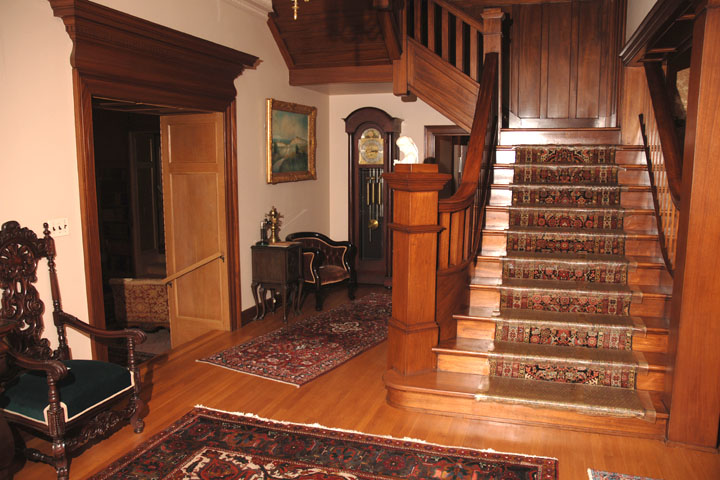
|
| |
|
|
The stairway and wood trim is Phlippine
mahogany. The grandfather clock and hall
tree were housewarming gifts from Jane's
father, John Gibson.
|
|
|
|
|
|
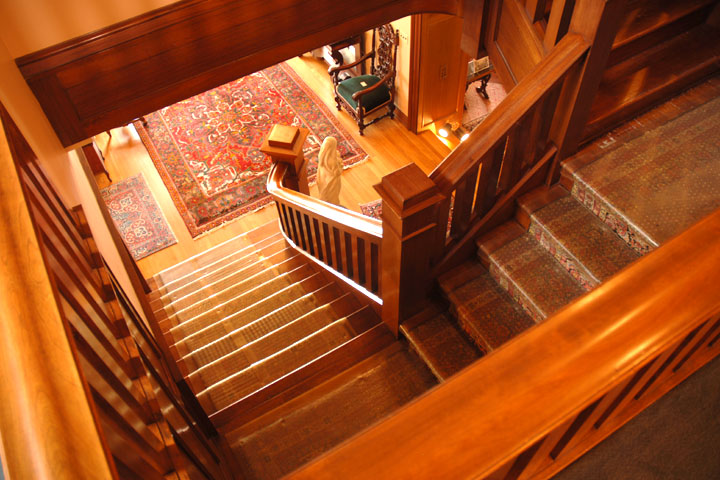
|
| |
|
|
Jane's parents owned a lumber company in
the Philippine Islands. Considering the wood
is almost 100 year old, it is obvious great
care has been taken to preserve the wood.
|
|
|
|
|
|

|
| |
|
|
The plaster design was added to the
ceiling during the 1930s remodeling. Molding
along the ceiling and throughout the house
is hand carved wood.
|
|
|
|
|
|
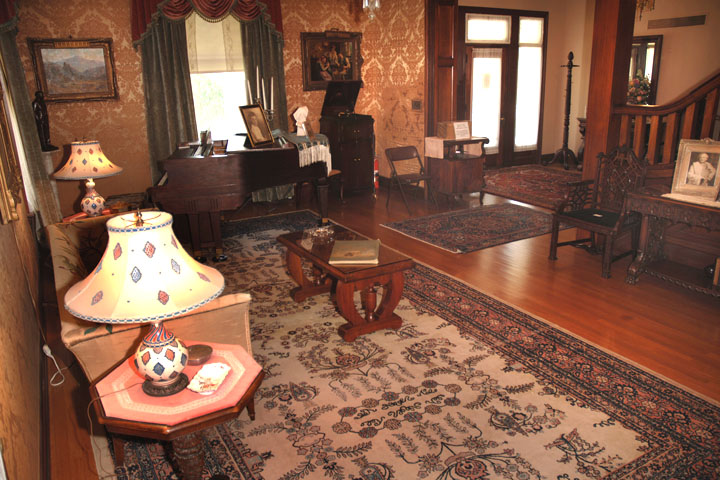
|
| |
|
|
Grant money and donations helped restore
the Weber baby grand concert and player
piano...along with the electronic device to
operate the player movement. The photograph
on the piano is their grandson, John Gibson
Phllips, Jr.
|
|
|
|
|
|
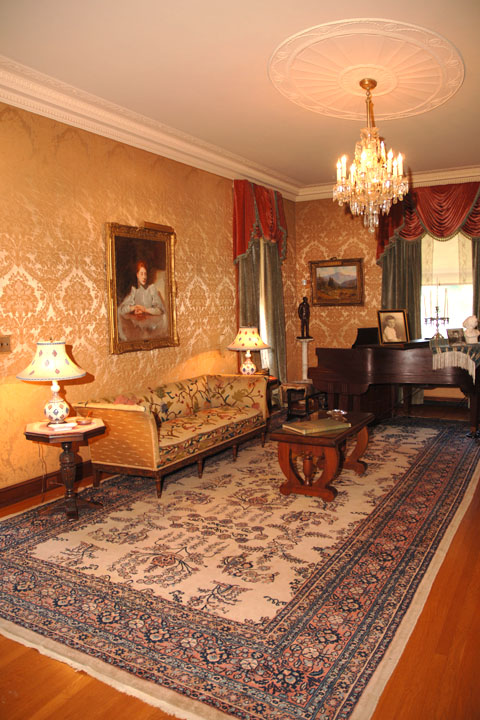
|
| |
|
|
Notice the Waterford crystal chandelier.
The walls are covered with silk damask.
After the major remodeling in the mid 1930s,
Mr. and Mrs. Phillips hired Frank Griggs
Photography Studio to record each room
through photography.
|
|
|
|
|
|
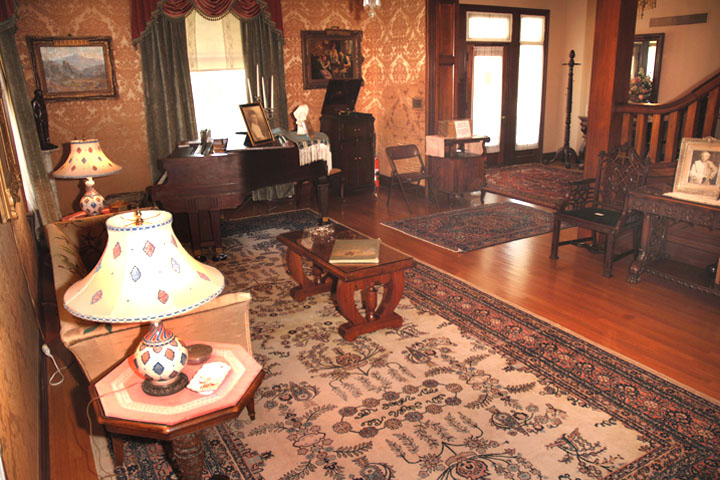
|
| |
|
|
Frank paid extra to have the victrola to
the right of the piano powered by
electricity.
|
|
|
|
|
|

|
| |
|
|
The bronze statue located in the corner
is the model for the large statue of Frank
Phillips in rotunda of Woolaroc Museum.
|
|
|
|
|






